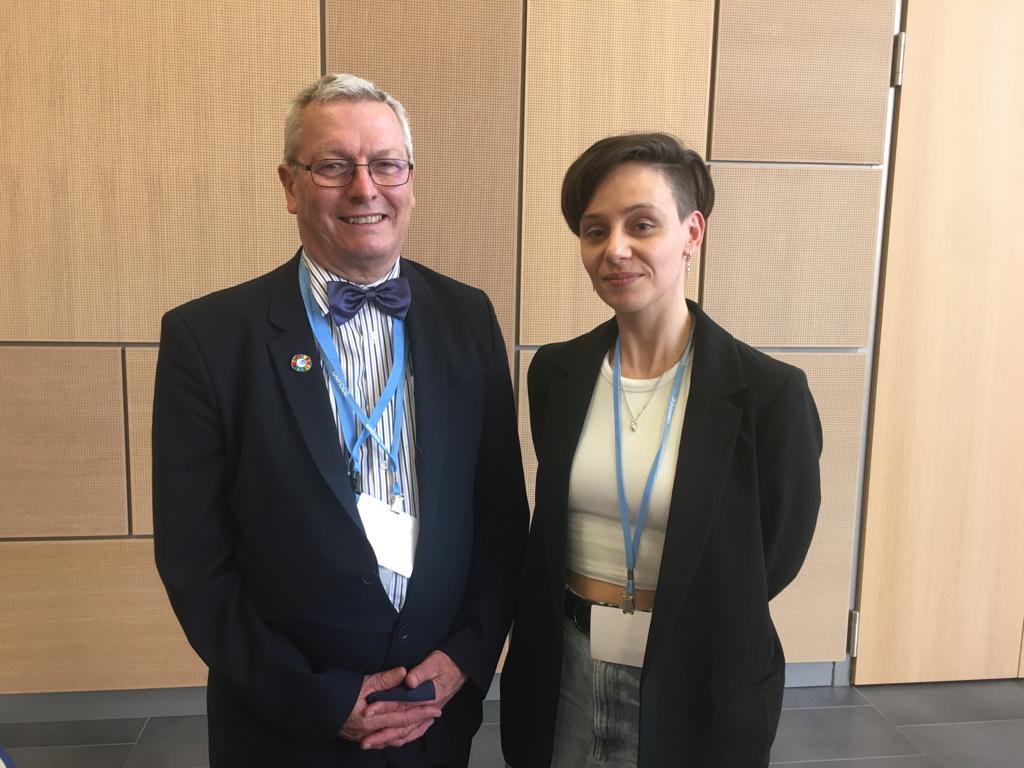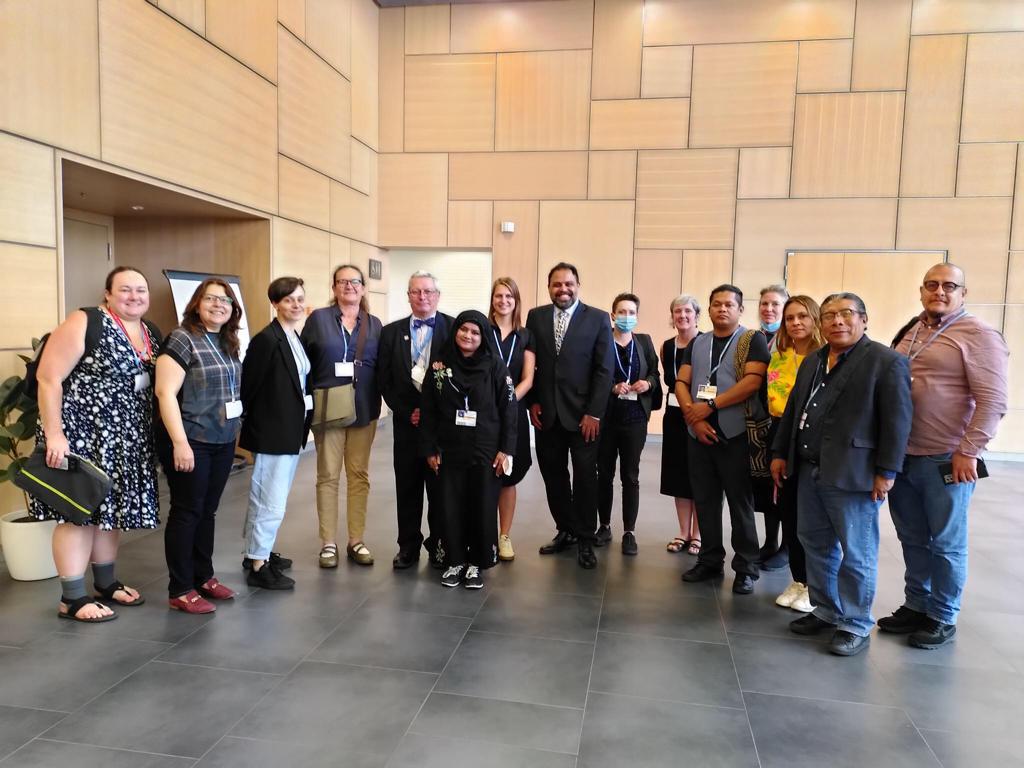
THE MEETING WITH THE NEW UN SPECIAL RAPPORTEUR ON CLIMATE AND HUMAN RIGHTS AT THE UNFCCC INTERIM NEGOTIATIONS: A BRIEF SUMMARY
The working group on human rights brings together members of various constituencies of civil society within the UNFCCC system, with the aim of coordinating its action to amplify its impact. The group, led by the Center for International Environmental Law (CIEL), during the Bonn interim negotiations, asked for a meeting with the Special Rapporteur on the promotion and protection of human rights in the context of climate change, Ian Fry.
The rapporteur was appointed by the Human Rights Council in March 2022 at the 49th session and started his work on May 1, 2022. The UNFCC interim negotiations held in June are the first event in which he took part as Special Rapporteur. Fry has several years of experience within the UNFCCC system. One of his most significant roles there was representing the government of Tuvalu, one of the island states that is already experiencing the most dramatic consequences of climate change.

After a brief introduction, the meeting developed into an open conversation between civil society representatives and the Speaker, who was immediately asked for clarification on the priorities of his mandate. His response was encouraging; among his priorities there are: Loss and Damage, protection of environmental defenders and indigenous peoples, migration (including not only migration between borders of different states for greater protection of indigenous peoples), the need for a new status for refugees that also protects those fleeing the consequences of climate change, women’s and gender issues (LGBTQIA+), observing the development of the case-law related to climate change (especially the case-law which aims at promoting intergenerational equity), corporate responsibility and just transition.
Fry has clarified that his mandate includes writing an annual report to be submitted by the 50th session of the Human Rights Council and the 77th session of the General Assembly. On both occasions, he expects to bring initial submissions on the political inaction on Loss and Damage and climate finance that occurred at the COP held in Glasgow and subsequently at the Bonn interim negotiations. Moreover, he is planning to go to Bangladesh and Mozambique as his first two annual visits of his mandate. On the basis of his visits, he will present two reports on climate and rights in order to facilitate solutions for those countries.
The Special Rapporteur’s plan is ambitious because it is dictated by the severity of the climate crisis. However, during the meeting, it was asked: how will this work make a difference in integrating and protecting human rights in the climate field? The evidence on the impacts of climate change on human rights is solid, widely recognized, and has been presented for decades by civil society to policymakers at every level, as well as the need to integrate human rights principles into climate policies because of their function as environmental and social safeguards. Yet, nothing has changed so far. Fry acknowledged the importance of this question and, given the urgency of the issues related to his mandate, he emphasized that he relies on his experience within the UN system to be an ally of civil society, by also stating that he intends to use the results of his work (positions, reports, visits, etc…) to bring out the weaknesses of the Global North and corporations’ positions which are slowing down the proceedings of reduction of CO2 emissions, pushing humanity toward a dramatically unsustainable global average temperature rise.
Italian Climate Network, member of the working group on human rights, was present at the meeting represented by Chiara Soletti as Policy Advisor.
Chiara Soletti
Published online for Italian Climate Network on the website of the organisation.
